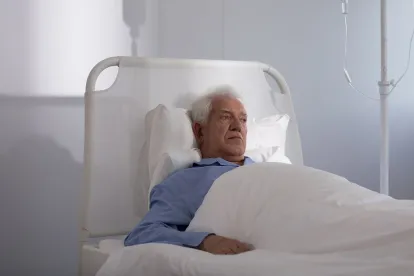Among the many concerns arising from rampant spread of COVID-19, are provider concerns regarding potential liability for care provided during the pandemic due to limited medical resources. Providers and policy makers have discussed such concerns particularly given the currently limited number of available ventilators and qualified technicians as compared to the numbers of patients who may need access to such equipment.[1] Congress and states have provided varying levels of liability protection, though such protections are themselves limited.
Under the Coronavirus Aid, Relief, and Economic Security Act (“CARES Act”), Congress provided liability protection to volunteer health care professionals providing health care services during the current public health emergency. [2] Specifically, the CARES Act exempts volunteer health care professionals from liability under federal or state law for any harm caused by an act or omission, unless the harm was caused by willful or criminal misconduct, gross negligence, reckless misconduct, conscious flagrant indifference, or under the influence of alcohol or intoxicating drugs, in providing health care services during the public health emergency with respect to the coronavirus. This provision preempts state or local laws that provide such volunteers with lesser protection from liability.
Notably, Congress chose not to extend liability protection to non-volunteer health care professionals, affording no wide-spread federal protection to those employed or contracted professionals treating patients during the emergency. Certain states, however, have extended liability protection to employed or contracted health care professionals through state orders. For example, Governor Cuomo of New York, through executive order, waived certain state laws to provide immunity from civil liability to certain health care professionals for any injury or death alleged to have been sustained directly as a result of an act or omission by such professional in providing medical services during the pandemic, unless such injury or death was caused by the professional’s gross negligence.[3]
Expectations and Recommendations
Circumstances are changing quickly with respect to the virus and related testing and treatment as well as with policymakers’ responses. In an effort to encourage specialists to assist in direct care for patients hospitalized with COVID-19, Sen. Bob Sasse, R-Neb., just introduced a bill that would grant broad legal immunity for those health care providers who provide testing or treatment outside of their specialties to patients with COVID-19 for the duration of the national health emergency. Specifically, the legislation would protect health care providers from federal, state and local civil liability if they are: (1) using or modifying a medical device for an unapproved use or indication; (2) practicing without a license or outside of an area of specialty if instructed to do so by an individual with such a license or within such an area of specialty; or (3) conducting the testing of, or the provision of treatment to, a patient outside of the premises of standard health care facilities. Other regulators at both the state and federal levels are also likely to take steps to address liability concerns to help insure that available health care providers, regardless of specialty, are encouraged to step forward to assist in caring for COVID-19 patients. This is an area we will continue to monitor closely.
In the absence of the enactment of broader protections for health care professionals, health care facilities should strongly consider developing and/or adopting decision-making guidelines on allocation of scarce treatment resources. Such guidelines could help protect health care professionals who are acting in good faith and in accordance with their best medical judgment should others later question treatment decisions made during the public health emergency.
[1] See, e.g., Cohen, I.G., et al., Potential Legal Liability for Withdrawing or Withholding Ventilators During COVID-19, Journal of the American Medical Association, Published online April 1, 2020. doi:10.1001/jama.2020.5442 (Accessed April 2, 2020); Faust, J.S., Make this simple change to free up hospital beds now, Washington Post (Online), March 15, 2020 at 8:07 p.m. EDT (Accessed April 2, 2020).
[2] Section 3215, Coronavirus Aid, Relief and Economic Security Act, Pub. L. 116-136 (March 27, 2020)
[3] For more information on Governor Cuomo’s executive order, see “COVID-19: New York Governor Temporarily Suspends Various Health Care Rules and Request Health Care Facilities to Increase Bed Capacities.”





 />i
/>i

